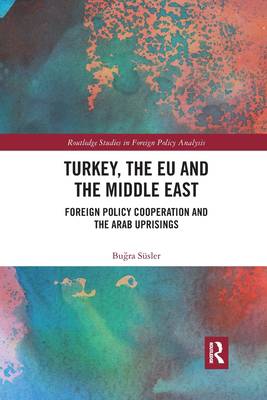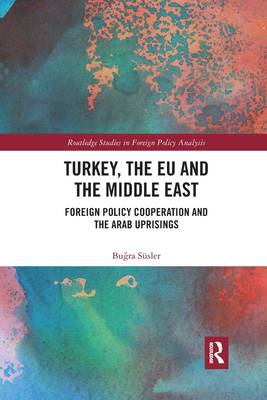
- Retrait gratuit dans votre magasin Club
- 7.000.000 titres dans notre catalogue
- Payer en toute sécurité
- Toujours un magasin près de chez vous
- Retrait gratuit dans votre magasin Club
- 7.000.0000 titres dans notre catalogue
- Payer en toute sécurité
- Toujours un magasin près de chez vous
Description
This book focuses on the dynamics of Turkey's relationship with Europe in the context of the 'Arab Spring' and analyses Turkish behaviour vis-à-vis foreign policy cooperation with the EU.
Süsler explains the complexity of Turkey-EU relations by looking beyond membership negotiations and examines informal foreign policy dialogue between Turkish and EU officials. The book discusses the reactions of the Turkish government to the uprisings in Libya, Syria, and Egypt and cooperative opportunities between Turkey and the EU. The analysis finds that although cooperation varies across cases, foreign policy dialogue has become a main driver of the Turkey-EU relationship. A counter-intuitive finding of the research is that the EU has often been the actor seeking Turkey's cooperation, rather than the other way round, clearly challenging the original power asymmetry between Turkey and the EU.
Based on interviews with diplomats and policy makers and extensive documentary research, this book will be of interest to political scientists, students, policy makers and researchers focusing on Turkish foreign policy and Turkey-EU relations. This book is also about exploring inventive ways of maintaining a complex working partnership with the EU and will be of interest to scholars working on the EU's relationship with "outsiders".
Spécifications
Parties prenantes
- Auteur(s) :
- Editeur:
Contenu
- Nombre de pages :
- 196
- Langue:
- Anglais
- Collection :
Caractéristiques
- EAN:
- 9781032336893
- Date de parution :
- 13-06-22
- Format:
- Livre broché
- Format numérique:
- Trade paperback (VS)
- Dimensions :
- 150 mm x 234 mm
- Poids :
- 272 g

Les avis
Nous publions uniquement les avis qui respectent les conditions requises. Consultez nos conditions pour les avis.






